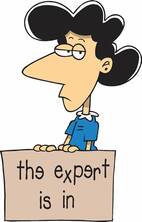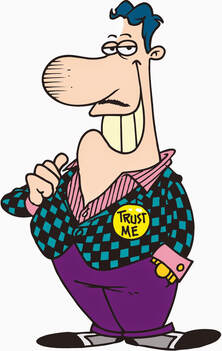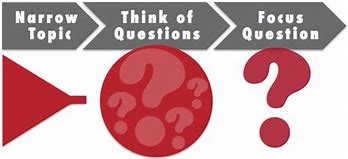 If you are with someone who gets bitten by a snake, what do you do to help them? If you are thinking “I cut the wound and suck out the poison” then you are wrong and the person who was bitten will probably die. Such is the power of Hollywood movies that millions of movie goers have grown up thinking that, in an emergency, that’s the way you treat a snake bite. In a similar vein (pun intended), you may think that the way to get rid of leeches is to burn them off with a cigarette end. I’ll give the correct methods for dealing with both those things at the end of the blog if you want to stick around, but the point I’m making is about research and why it is so important for authors to do it properly, rather than relying on what they think they know – because they may be wrong.  Many readers follow a particular genre of books because they have an interest in the subject the author is writing about. People interested in the “Old West” will read westerns, people who are interested in history will read historical fiction, usually focusing on a particular period. And, let’s face it, with so much crime drama on TV, everyone thinks they know about the law these days. But because those readers have an interest in those things, they tend to be quite knowledgeable - which makes life difficult for the author. If your reader knows as much, or more, about the subject than the author knows, then the author quickly loses credibility if they get stuff wrong. And if the author loses credibility, they lose the reader. They may also get an adverse review for their book, which will affect future sales. Which is why research is so important.  We have received submissions from authors where the research has been poor or non-existent and when we have provided feedback on that, they have responded by pretty much saying “research is for losers”. OK, they may not have used those precise words, but that was the tone of the message. Or they have pointed us in the direction of the TV show or movie from which they got their information. Which brings us back to snake bites and leaches. TV shows and movies are produced for the purposes of entertainment. Some have high production values and take care to get their facts right. Some just want to get a story onto the screen and aren’t bothered about the facts. Sadly, it’s the latter that seem to work their way into the brain.  If you are an author that wants to be regarded as credible, then taking care about facts is important. You are taking the reader on a journey in which you will make your characters do some incredible things. Some of those things may not be possible in real terms, but you want you readers to believe they are. Which means that they should trust you and the way you get them to trust you is by getting the real stuff right; the stuff the readers know about already. And if you have to stretch the truth in order to make a story work then it is good manners, at least, to tell the reader that you have stretched the truth and in what ways you did it. For example, if you have mentioned an historical battle and placed it in the same year as you have set your story, when in fact it was a year or two earlier or later, then tell your readers that and tell them why you did it. They will respect you for your honesty and, more importantly, they won’t embarrass themselves in the pub when they argue about it with their pals.  So, what is research? One dictionary gives the definition as “the systematic investigation into and study of materials and sources in order to establish facts and reach new conclusions.” Note the use of the word “systematic” in the definition. You have to know what you are looking for and that directs you to the places where you will find it. Asking the right questions is always a good start.  Research methodology Research methodology For authors this means asking questions about the people, places, events, dates, times, artefacts, fashions, technology, science, theories, outcomes and a whole lot more, depending on the genre in which the author writes. What isn’t research? We’ve already mentioned TV and movies (though factual programmes can be helpful) but it also isn’t using the internet. That is a useful tool, but it is littered with inaccuracies and if you aren’t an expert yourself, you may end up repeating someone else’s errors.  Comedian Dave Gorman Comedian Dave Gorman I’ll give you an example. The Wikipedia page for British comedian Dave Gorman stated that he had achieved a certain feat on a bicycle (he is a keen cyclist). It even showed an image of him in full lycra (spandex for our American readers), standing next to his bike. He hadn’t achieved that feat, something to which he freely admitted. The citation that backed up the statement was for a small circulation local newspaper that had got its facts wrong. Gorman told Wikipedia that and they removed the offending reference. A week later it was back in again, with the same citation, because the person who had edited the article claimed that the newspaper article was correct and Gorman was wrong. Yes, the person who knew what he had and hadn’t done was deemed to be the one in error. And that’s the internet for you.  So, what research do you do? No matter what the subject, someone will have written a book about it. In all probability there will be more than one book. So that’s where you start. Reading more than one book on a subject gives the author several things:
Yes, reading books is time consuming. But better to take a bit of time and get a better book, than take short cuts then get bad reviews because you’ve got your facts wrong.  Interview witnesses Interview witnesses If events are more recent and there are living witnesses, then research is interviewing them. Witnesses add real texture to a story and turn dusty old facts into reality. Even better, they can add an emotional depth to events. This approach also works with getting information from experts. Talk to doctors, police officers, lawyers, scientists, soldiers etc to find out what really happens behind the scenes. This is especially important when it comes to procedural issues. These experts can also explain things in simpler terms than some of the books on the subject. All those people can also tell stories of their own experiences, which can be woven into the author’s plot. Of course, interviewing people takes time, but with modern technology it can often be done without leaving the house. At least make the effort.  Visit locations Visit locations Finally, visit the real locations and study the places where events happened, or where you want them to happen in your plot. It is quite clear that Dan Brown had never actually visited Rome before he wrote “Angels and Demons” and that is very apparent to people like me who have been there and then threw the book across the room in disgust at him getting so much wrong. Yes, location visits are expensive, but they are also tax deductible. *  The last resort The last resort Only if you are completely unable to do any of the above should you rely on the internet and even then you should read as many sources as possible to make sure that you aren’t being misled. There are many websites that actually hold first-hand accounts of events and extracts from other reliable sources. Wikipedia may be good for a quick overview of a subject, but don’t rely on it for some of the detail (see above re Dave Gorman). And never rely on TV shows or movies. So, now that I’ve exhausted the subject of research, how do you deal with snake bites and leaches? Snake bite. Remove jewellery or watches from the affected limb, in case the injured area swells up and cuts off the blood supply. Keep the wound below the heart to slow the circulation. Seek medical help immediately. It helps to be able to identify the type of snake, but don’t take any further risks in doing so. By the way, the reason cutting the wound and sucking doesn't work is (a) because the poison spreads too quickly and (b) any poison that is sucked out will only be a fraction of what was injected. Removing leaches. The best thing to do is to let them drink their fill. Once they finish feeding, they will just drop off (it takes about half an hour). If you don’t want to wait, then identify the head and apply pressure on either side by sliding the thumbs gently towards the head. The head should pop out and the leach can be lifted off. Burning the leach with a cigarette will work, but it runs the risk of burning the skin, which can then become infected, which will cause way more harm than the leach. Yes, we did research those answers before posting them. * This doesn’t mean that authors can take a holiday and then deduct it for tax purposes. There must (a) be a published book resulting from the trip and (b) only the proportion of the trip that was actually spent doing research can be deducted, not the time spent lying on a sun bed. Incidentally, the cost of books and travel to undertake interviews is also tax deductible. If you have enjoyed this blog or found it information, and want to make sure you don't miss future editions, why not sign up for our newsletter? Just click the button.
0 Comments
Leave a Reply. |
AuthorThis blog is compiled and curated by the Selfishgenie publishing team. Archives
June 2025
|
 RSS Feed
RSS Feed